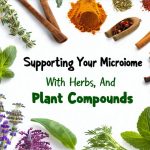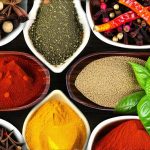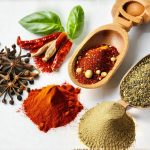The intricate world within our gut – the microbiome – is increasingly recognized as fundamental to overall health, influencing everything from digestion and immunity to mood and even chronic disease risk. For decades, we’ve focused on killing off ‘bad’ bacteria with antibiotics, but a growing body of research suggests that nurturing a diverse and balanced microbiome is far more effective for long-term well-being. This isn’t simply about adding probiotics; it’s about feeding the beneficial microbes already residing within us – prebiotics, fiber, and specific compounds found in whole foods play critical roles. Beyond dietary staples like fruits, vegetables, and fermented foods, a fascinating area of exploration involves the potential of spices to modulate microbiome composition and function.
Traditional medicine systems have long utilized spices not just for flavoring food but also for their therapeutic properties. These aren’t merely culinary additions; they contain potent bioactive compounds that can interact with our gut ecosystem in complex ways. While research is still unfolding, preliminary studies are revealing how spices like turmeric, cinnamon, and clove might influence microbial communities, reduce inflammation, and support a healthier digestive environment. It’s important to understand this isn’t about a quick fix; it’s about integrating these spices thoughtfully into our diets as part of a holistic approach to gut health alongside other lifestyle factors such as stress management, adequate sleep, and a balanced diet. You can learn more about balancing nutrition on sensitive days.
The Power of Turmeric: Curcumin & Microbial Modulation
Turmeric, derived from the rhizome of the Curcuma longa plant, has gained significant attention for its active compound, curcumin. Traditionally used in Ayurvedic medicine, curcumin’s anti-inflammatory properties are well documented. However, its impact extends beyond inflammation and into the realm of gut microbial ecology. Studies suggest that curcumin can influence microbiome diversity, potentially favoring beneficial bacteria while inhibiting the growth of pathogenic ones. This isn’t a direct antibacterial effect; rather, it appears to create an environment less hospitable for harmful microbes.
Curcumin’s effects are complex and often depend on factors like dosage, bioavailability (which is notoriously low – more on that later), and individual gut microbiome composition. Research indicates it can increase the abundance of Bifidobacteria and Lactobacilli, both considered key players in maintaining a healthy gut environment. These bacteria produce short-chain fatty acids (SCFAs) like butyrate, which are essential for colonocyte health and immune function. Conversely, curcumin may help to reduce populations of certain inflammatory bacterial species. It’s crucial to note that the gut microbiome is highly individualized; what works for one person might not work for another, highlighting the need for personalized approaches. If you experience digestive discomfort, consider using a symptom tracker to pinpoint triggers.
Bioavailability remains a significant challenge with curcumin. It’s poorly absorbed on its own due to rapid metabolism and low solubility. To enhance absorption: – Combine turmeric with black pepper, which contains piperine – a compound that significantly increases curcumin bioavailability. – Incorporate turmeric into meals with healthy fats, as fat improves absorption. – Consider using curcumin extracts standardized for higher concentrations of the active compounds alongside absorption enhancers. While supplements are available, obtaining curcumin through whole food sources is generally preferable whenever possible. It’s also helpful to understand how to balance gut acidity for optimal absorption.
Cinnamon’s Role in Gut Health: Beyond Blood Sugar Control
Cinnamon, a beloved spice derived from the bark of Cinnamomum trees, is often associated with blood sugar regulation. However, its impact on the gut microbiome is also garnering attention. Like turmeric, cinnamon contains bioactive compounds – primarily cinnamaldehyde – that can influence microbial communities. Studies suggest it may possess antimicrobial properties against certain harmful bacteria and fungi in the gut, while simultaneously promoting the growth of beneficial species.
Specifically, research indicates that cinnamaldehyde can disrupt biofilm formation by pathogenic bacteria like Clostridium difficile, a common cause of antibiotic-associated diarrhea. Biofilms are protective layers formed by bacteria that make them more resistant to antibiotics and immune defenses. By disrupting these biofilms, cinnamon could potentially enhance the effectiveness of treatments and reduce the severity of infections. However, it’s important to differentiate between Ceylon cinnamon (“true” cinnamon) and Cassia cinnamon, which contains higher levels of coumarin – a compound that can be harmful in large quantities. Consider combining warm liquids with cinnamon for enhanced comfort and digestion.
Cinnamon’s prebiotic effects are also being investigated. Some studies show it may increase the production of SCFAs, particularly butyrate, by beneficial gut bacteria. This contributes to a healthier gut environment and supports overall digestive function. Integrating cinnamon into your diet doesn’t necessarily require complex recipes; sprinkling it on oatmeal, adding it to smoothies, or using it in baking are simple ways to reap its potential benefits. You might also find relief by using gentle spices and herbs if nausea is a concern.
Clove: A Potent Spice With Antimicrobial Potential
Clove, derived from the dried flower buds of the Syzygium aromaticum tree, is a powerful spice renowned for its strong aroma and flavor. Historically used in dentistry as a natural anesthetic and antiseptic, clove’s antimicrobial properties are well-established. This extends to its potential impact on the gut microbiome. Eugenol, the primary bioactive compound in clove, exhibits broad-spectrum antibacterial activity in vitro, meaning it can inhibit the growth of various bacteria in laboratory settings.
The implications for gut health are still being explored, but research suggests that eugenol may selectively target harmful bacteria while leaving beneficial microbes relatively unharmed. This selectivity is crucial; indiscriminate killing of all bacteria (as with antibiotics) can disrupt the delicate balance of the microbiome and lead to unintended consequences. Clove’s antimicrobial properties could potentially be useful in combating imbalances like small intestinal bacterial overgrowth (SIBO), although further research is needed to confirm this. For sensitive stomachs, warming herbs and spices can be particularly soothing.
Beyond its antimicrobial effects, clove may also possess anti-inflammatory properties that contribute to a healthier gut environment. Inflammation plays a significant role in many digestive disorders, and reducing inflammation can improve gut function and overall well-being. However, due to its potency, clove should be used sparingly. Excessive consumption could potentially irritate the gastrointestinal tract or interact with certain medications. A pinch of clove added to teas, baked goods, or savory dishes is generally sufficient to enjoy its flavor and potential health benefits without causing adverse effects. It’s also important to note that individuals with bleeding disorders or taking blood thinners should exercise caution when consuming clove due to its mild anticoagulant properties.
It’s crucial to remember that the gut microbiome is a complex ecosystem, and spices are just one piece of the puzzle. A holistic approach encompassing a diverse diet rich in fiber, regular physical activity, stress management techniques, and adequate sleep remains paramount for optimal gut health. While these spices offer promising potential benefits, they should be viewed as complementary tools rather than standalone solutions. Further research is needed to fully understand their mechanisms of action and optimize their use for promoting microbiome balance and overall well-being. You may also find it helpful to explore gentle cooking methods to ease gut load during sensitive times.


















